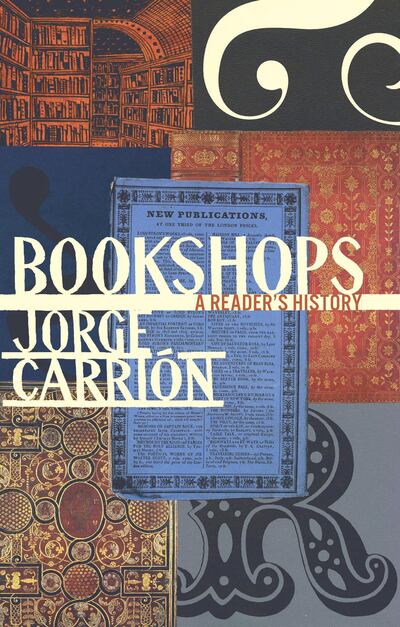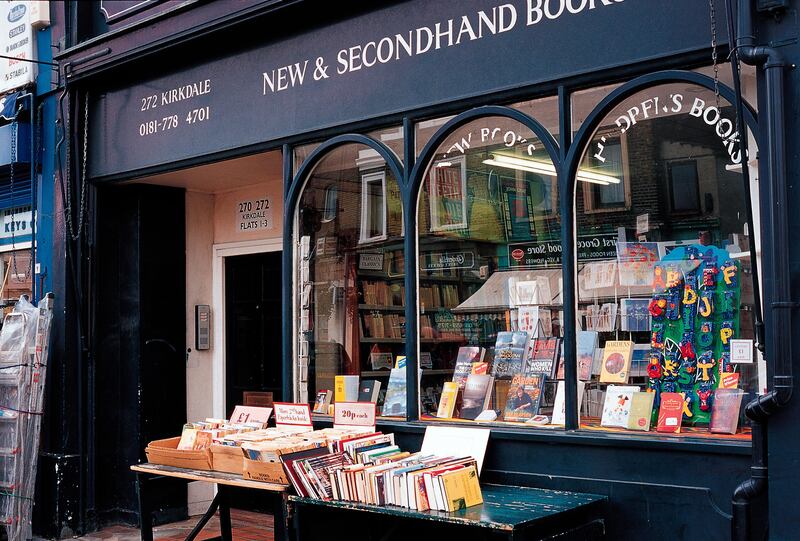‘I went in the familiar door,” wrote old journalist Nathaniel Willis in the 1860s, “Fields, the publisher, is the hub in which every spoke of the radiating wheel of Boston intellect has a socket – the central news giver, listener, sympathiser, gossip, and advisor.”
In the span of less than an hour at the Old Corner Bookstore, Willis encountered Henry Wadsworth Longfellow, George Lunt, George Hillard, and half a dozen other literary lights of the day – the shop was frequented by the likes of Emerson, Hawthorne, James Russell Lowell and Oliver Wendell Holmes – and later exclaimed, “For a chance droppings through a publisher’s hour glass, of a summer’s day, what sands of gold!”
James Fields and his partner William Ticknor ran their publishing firm and the Old Corner Bookstore from 1832 to 1865 as the living, beating heart of the book-world of Boston at the time, and that kind of phenomenon, almost unique to bookshops, is the central subject of Jorge Carrión's 2013 Librerías, now translated into English as Bookshops: A Reader's History by Peter Bush and published in a lovely hardcover edition by Biblioasis. Carrión, a critic and creative writing instructor, roams the globe in his study of great and often eccentric bookshops, always acting in the good faith of his own assertion that "every bookshop is a condensed version of the world".
Bookshops introduces readers to a wide array of such worlds, from Istanbul's Robinson Crusoe 389 to Dante and Descartes in Naples, and among all the candidates for the world's oldest bookshop, like 1 Trinity Street in Cambridge, or Gebether and Wolff in Kraków, or the celebrated Librairie Delamain in Paris.
Carrión relates many of the choicest famous stories of these places, like the oddities of the bizarre five-decade tenure Christina Foyle enjoyed as ruler of Foyle’s bookshop in London’s Charing Cross Road, “refusing to use calculators, cash registers, telephones or any other technological advances to process sales and orders, or arranging books by publishing house and not by author or genre, or forcing
her customers to stand in three separate queues to pay for their purchases, or
sacking her employees for no good reason”.
The strange life of such lifelong booksellers is sarcastically lamented by Hector Yánover, charismatic owner of the Librería Norte in Buenos Aires: “A bookseller is a man who reads when he rests, and what he reads is book catalogues; when he goes for a walk, he stops in front of the windows of other bookshops; when he goes to another city, another country, he visits booksellers and publishers.”

Carrión delves into the long history of bookshops and the constant shifting of their roles in their own settings. “Bookshops have never really been sure about their real boundaries,” he writes, and the vignettes he describes demonstrate this: sometimes shops are exclusive gathering-places for literati, other times, as diarist Samuel Pepys confides to his diary, they’re inviting parlours, places where comfortable chairs and couches invite customers to stay and read for as long as they like.
Of course, as in the case of Willis’s visit to the Old Corner Bookstore, some of those customers may have been loitering with intent, since famous literary figures often frequented famous shops.
Carrión describes many such shops, like Adrienne Monnier’s La Maison des Amis des Livres, where Walter Benjamin, André Breton, Paul Valéry, Jules Romains or Léon-Paul Fargue could be found, or Sylvia Beach’s Shakespeare and Company, which often hosted authors like Ernest Hemingway, F Scott Fitzgerald, Jean Prévost, André Gide, James Joyce or Valéry Larbaud.
Bookshops resists the easy lure of nostalgia that often snares other writers on the subject of great bookstores; Carrión brings his story directly down to the present era, when conglomerated bookstore chains started to erode the customer base and financial bottom line of these idiosyncratic shops all over the world. In the face of skyrocketing rents and increasingly distracted customers, these bookstore chains have strained to come up with new strategies, installing cafes on the premises and advertising themselves as Wi-Fi hotspots – all while the breadth and depth of the actual book stock itself has all but dwindled.
Browsing in even the largest retail bookstores can be a barren, singularly depressing experience, and there are shadows of that reality in the corners of Carrión’s generally cheerful book.
The darkest of those shadows, the most severe existential threat to bookshops in the 21st century, is of course the internet and particularly Amazon.com.
The English-language edition of Carrión's book includes a separate pamphlet titled Against Amazon: Seven Arguments/One Manifesto, likewise translated by Bush, outlining the author's main objections to the ubiquitous online bookseller.
Naturally, these objections are often as personal and intangible as the bookshop magic he describes in Bookshops.
Buying a book in a bookshop imprints a memory onto the item, he asserts, whereas when the same book is bought on Amazon, “the experience is the same as the one before and after. The aura around each book you read becomes diffuse and blurred”.
The exact opposite is true in the unorganised, overcrowded aisles of the book stores he explores in the pages of this book, a must-read for bibliophiles everywhere.
In places from the Bertrand bookshop in Lisbon to Powell’s Books in Portland, to Boston’s Brattle Book Shop to the mighty Strand Bookstore in New York City, the memories are as vivid as the magic.
_________________
Read more:
[ Lang Leav: 'Each generation cultivates a language all of their own' ]
[ Mohammed Hanif’s goal is to search for meaning rather than find the truth ]
[ Book review: Han Kang’s The White Book is a novel of extraordinary stylistic purity ]
_________________





